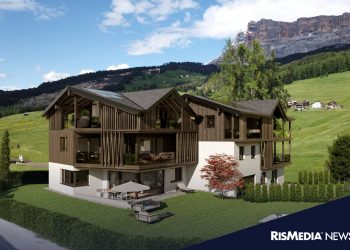RISMEDIA, February 10, 2010—Home affordability has improved in the metropolitan Chicago real estate market and that has attracted substantial numbers of bargain hunters. However, affordability is only one of the factors that should shape a buyer’s priorities. Another key concern is selecting a property that will best retain its value.
The Chicago area has fared better than the nation as a whole when it comes to home values, reports Jim Merrion, regional director of the RE/MAX Northern Illinois real estate network. He notes that a Forbes magazine study showed that Chicago-area home prices declined an average of 13.4% from the beginning of 2007 through October 2009. That contrasts with the 29% nationwide decline shown by the Case-Schiller Home Price Index since home prices peaked in 2006.
However, Merrion said that Chicago-area home prices are not immune to further declines in the short term. “The market appears to be stabilizing, but given how distressed properties continue to expand the inventory of homes for sale, average home values remain vulnerable,” he said. “However, buyers who do their homework can identify homes with locations or other characteristics that have made them most resistant to falling values. Buying those properties is a good way to reduce the risk to a home buyer’s investment over the next several years as the housing market recovers its equilibrium.”
Selecting a home with good value retention characteristics can be a challenge because each market area is a bit different. “Usually, it is a combination of characteristics that helps a home retain value,” Merrion contends. “Location and condition are important, but other factors can play a major role, including the type of home and its price relative to other properties in the same area.”
First-time buyers will be pleased to hear that modestly priced homes have fared well over the last several years in terms of value retention, according to RE/MAX agents who responded to a survey about value retention. “In our area, single-family homes and townhouses priced under $400,000 have been the most resistant to the trend toward lower prices,” reported Jayne Schirmacher of RE/MAX TEAM 2000 in Orland Park, Ill. “And that is especially true of homes that have been appropriately updated or are fairly new.”
Schirmacher estimates a home meeting those criteria has lost no more than 15% of the value it had at the peak of the housing boom in 2006 even though home prices generally have fallen 20-30% in the market area she serves.
Neighborhood differences also play a role, according to Schirmacher. For example, she reports that homes in Orland Park have fared better in terms of retained value than homes in more distant suburbs where home builders are active and have been cutting prices on their new construction.
Overall neighborhood appearance also can be a telling factor when it comes to value. Areas where homes are uniformly well-maintained and schools have a good reputation are attracting buyers right now, reported Joanne Metz of RE/MAX Vision in Elmwood Park, Ill. “A nicely maintained home, especially if priced under $250,000, is going to hold its value quite well in our area,” she said.
Susie Scheuber of RE/MAX Action in Lisle, Ill., said that even when the builders depart, the communities they leave behind can be vulnerable to sharp price declines. “Home values in Plainfield have fallen 30% or more in many instances because there are so many newer and similar homes on the market. In older established neighborhoods, such as the west side of Joliet, prices have been much more stable, down only about 10% from their peak. At least in part that is because older homes often deliver a good combination of location, quality and space at a reasonable price,” she noted.
Sharon Falco, with RE/MAX Central in Roselle, Ill., said she has seen a similar trend as buyers today look to get as much house as possible. According to Falco, homes in Bartlett, Ill., are outperforming those in Schaumburg, Ill., because homes in Bartlett cost less per square foot. “Living in Bartlett usually means a longer commute for buyers than they would have in Schaumburg, and they have to sacrifice some of the amenities that Schaumburg offers, but they are willing to go further out to get more house for their money,” Falco said. Wherever they look, she urges buyers to invest in a neighborhood with enough recent sales so that they can judge value trends.
In Chicago, the neighborhoods proving to be the best investment for home buyers include some that are traditionally desirable and others that have substantially gentrified in recent years, according to Juliana Yeager of RE/MAX Edge in Chicago. “Lincoln Park and Bucktown are good examples because Lincoln Park has long been a desirable location, while Bucktown has been transformed in the last 20 years, yet both areas are close to downtown and have an outstanding housing stock,” said Yeager. She reports that Bucktown has proven popular with younger buyers because it has many newer properties that are in excellent condition. Lincoln Park, on the other hand, has been the one area where even homes that aren’t in great shape are selling well and holding value. “The neighborhood is desirable enough that buyers are willing to purchase something that needs work if they can get the space and location they like,” she said
Yeager was one of several agents to note that for the last several years, townhouses have outperformed other housing types when it comes to value retention. “They are less expensive than single-family homes in similar locations yet offer comparable amounts of space, and that has made them appealing to budget-conscious buyers,” said Yeager. “Another reason they have done well value-wise is that they are in relatively short supply. There are many more condo apartments and single-family homes on the market.”
Falco reports that townhouses are proving to be good investments in the northwest suburbs, too, if they are priced under $300,000 and have two bedrooms and a loft or three bedrooms.
According to Joanne Metz, ranch homes have been the best performers in her market area, which encompasses the suburbs just south of O’Hare Airport. “It’s a matter of demand,” she said. “Many buyers like the idea of single-level living, and there aren’t that many nice ranch homes available.”
Buyers will find it easier to identify the homes most likely to retain value in any given market if they seek the counsel of a real estate agent who knows that market intimately, contends Jim Merrion. “Buying a home isn’t merely an investment decision. Nonetheless, in the current market it is wise not to ignore the investment aspect of a purchase even if you plan to stay for 20 years or more. Your home can be a vital source of financial leverage and tax advantages, so finding one that will do a good job of protecting your investment should be a central consideration.”
For more information, visit www.remax.com.










